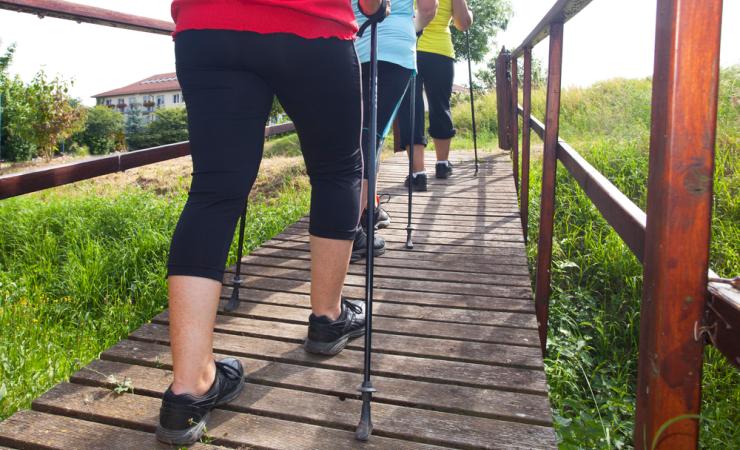Alzheimer's disease - a growing problem in Europe and beyond
Around 7 million people are living with Alzheimer’s disease in Europe alone, and that number is set to double by 2050. Although there is no cure, there are now treatments that can slow the progress of the disease. In addition, we now have a greater understanding of the lifestyle changes that can reduce people’s risk of Alzheimer’s disease. We also know that the first signs of Alzheimer’s disease appear in the brain several years before start to develop symptoms. This effectively means that there is a huge window of opportunity for people to take action to delay disease onset, and slow disease progression.
The aim of new IHI project AD-RIDDLE is to revolutionise the way Alzheimer’s disease is detected, diagnosed, prevented, and treated. It will do this by delivering a ‘toolbox platform’ of validated resources with resources designed for patients, caregivers and healthcare providers. This toolbox platform is designed to be modular and customizable, allowing health systems and healthcare providers to tailor component tools to the unique needs of different settings and practices.
A resource for patients and healthcare providers
The toolbox platform will offer a digital community engagement portal comprising self-guided assessment tools for people concerned about their dementia risk, as well as pathways for referral to the appropriate healthcare services and resources that ordinary people can easily use.
The platform will also include an array of screening and diagnostic tools to help identify those at risk of developing Alzheimer’s disease and diagnose those who already have it. These tools will include both blood-based biomarker tests and digital cognitive assessments. Healthcare providers will also have access to a decision support toolkit, powered by algorithms, to assist in the diagnosis, prevention and management of Alzheimer’s disease. Finally, the platform will help to ensure that patients benefit from personalised therapies including lifestyle interventions and medicines.
The modular toolbox will be tested in different healthcare settings (e.g. memory clinics, primary care) across six European countries. Data from AD-RIDDLE will be hosted by the European Platform for Neurodegenerative Diseases (EPND), an Innovative Medicines Initiative (IMI) project developing secure, accessible and sustainable ways to share research data and biosamples. Details of what AD-RIDDLE plans to do and the impacts it expects to achieve are spelt out in an article in the Journal of Prevention of Alzheimer's disease.
“AD-RIDDLE will rapidly advance the “last mile” of innovation, bridging Alzheimer’s care pathways from research to a real-world setting in an efficient and effective manner based on high-quality data,” said project co-lead Niranjan Bose of Gates Ventures. “AD-RIDDLE will generate real-world evidence for clinical implementation of precision diagnostics, interventions and therapies, and drive new research on Alzheimer’s disease by making datasets available through EPND.”
AD-RIDDLE brings together patient organisations, representatives of diverse industries, universities, healthcare providers and regulatory bodies. Together, they will help to pioneer a new approach to the way we prevent, diagnose and manage Alzheimer’s disease, and empower patients with practical information to help them safeguard their own cognitive health for as long as possible.
Reasons for renewed hope
“With new research on the efficacy of multi-domain lifestyle interventions and the promise of disease-modifying therapeutics, there is renewed hope for patients, caregivers, and healthcare providers, and a window of opportunity for substantial progress,” said project coordinator Miia Kivipelto of the Karolinska Institutet and Karolinska University Hospital. “AD-RIDDLE represents the greatest opportunity yet for cross-sector progress in Alzheimer's research and care.”
